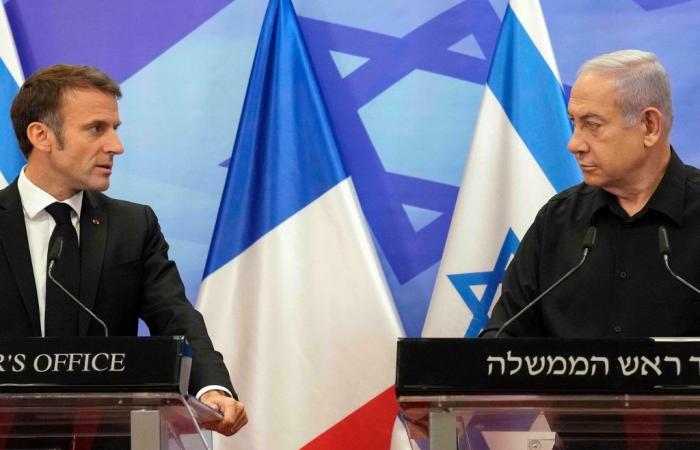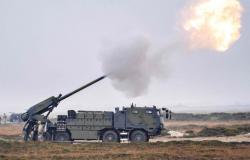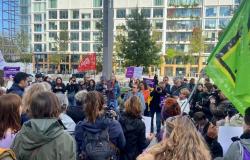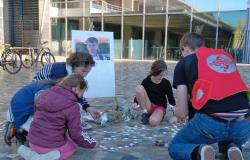Everything accelerated on October 15, when Emmanuel Macron, during a council of ministers, targeted Benjamin Netanyahu, recalling that “sour country was created by a decision of the United Nations », referring to the resolution of November 1947 on the partition of Palestine. That day, the French president added that it was “not not the time for Netanyahu to free himself from the decisions of the Organization ».
This remark, since denied by the main person concerned, immediately provoked a scathing response from the Israeli Prime Minister. In a press release, he recalled that “ it was not the UN resolution that established the State of Israel, but rather the victory achieved in the War of Independence with the blood of heroic fighters, many of whom were Holocaust survivors, including of the Vichy regime in France. »
This tense exchange comes in an already delicate context, after soldiers of UNIFIL, the UN peacekeeping force deployed on the Lebanese-Israeli border, came under fire from the Israeli army. An attack strongly condemned by Emmanuel Macron, who declared that “ Deliberately targeting UNIFIL troops is unacceptable » and assured that Paris “ would not allow this to happen again ».
While Israel has been engaged in a war in the Middle East for more than a year, France, historically an ally of the Jewish state, seems to be toughening its tone. A turning point which can be explained in particular by the offensives carried out by Netanyahu in Lebanon. “ Every time Lebanese sovereignty is endangered, tensions arise between France and Israel », analysis for the Sunday Newspaper Jean de Gliniasty, former consul general of France in Jerusalem. Also recalling that “ French support for Lebanon is a constant and historic commitment ».
Sensitivities to criticism of France, more than elsewhere…
This privileged relationship with Lebanon is part of a broader context, where Paris plays a particular role in the Middle East. “ France is home to one of the largest Muslim communities in Europe », Explains to JDD David Rigoulet-Roze, associate researcher at IRIS and specialist in the region. At the same time, it is home to the largest Jewish community in Europe, a factor that contributes to the complexity of relations with Israel. According to Jean de Gliniasty, “ Emmanuel Macron is one of the first leaders to speak out so clearly, even abruptly, on these issues. »
The rest after this ad
On the Israeli side, sensitivity to French criticism is palpable, especially as other European countries, such as Spain, display even harsher positions towards Israel, while actively supporting the recognition of the Palestinian state. “ But the Israeli reaction is always different when it is Paris which speaks », Estimates Rigoulet-Roze. He specifies: “ France is not a country like any other: a permanent member of the UN Security Council, its role in the Middle East remains important. Even if its voice is currently strategically devalued, but it still counts because it is not a country among others »
However, despite these tensions, Netanyahu’s political and military choices do not seem to be influenced by Paris. “ Even if French influence were as strong as before, this would in no way change the determinants of Israeli policy », observes Rigoulet-Roze, also editor-in-chief of the magazine Strategic Orients. Jean de Gliniasty agrees: “ The French position is rather a position of principle because we all know that when it considers that the question of its security is at stake, Israel does not listen to anyone, not even the United States, although it is the main supplier of weapons. »
Can we then speak of a real diplomatic crisis between the two countries? Recently, Netanyahu urged France to “ stand behind Israel », a sign of a deep disagreement between the two nations. But for Rigoulet-Roze, it is more of a “ interpersonal crisis » between Macron and the Israeli leader. “ There are tensions, of course, and certain statements are poorly received, even if in substance this does not call into question France’s overall support for Israel’s security. », tempers the researcher. Jean de Gliniasty concludes on a historical note: “ Israel knows that the French commitment to its security, within the 1967 borders, remains unshakeable. »
In the meantime, Emmanuel Macron maintains his position. The President of the Republic renewed this Thursday, October 17, from Brussels on the sidelines of the European Council, his request to Israel to “ end its military operations » in Lebanon.
France






